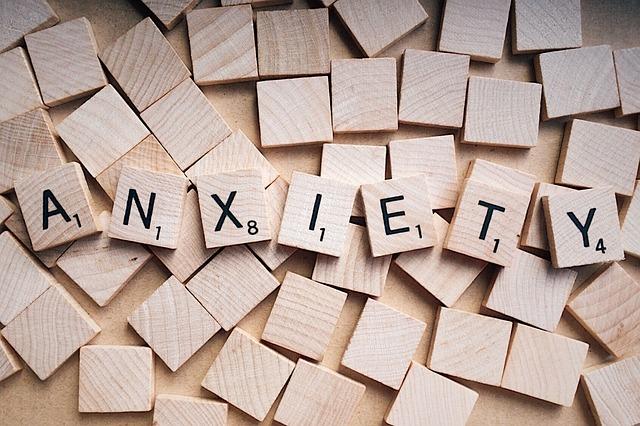Is Medication Necessary for Managing Pet Anxiety

In recent years, pet owners have become increasingly attuned to the emotional well-being of their furry companions, leading to a growing awareness of pet anxiety as a common issue. From trembling Chihuahuas during thunderstorms to cats hiding under beds when guests arrive, anxiety can manifest in various ways, affecting not only the pets but also their human families. As the quest for solutions continues, one question frequently arises: Is medication necessary for managing pet anxiety? This article aims to explore this question, examining the benefits and drawbacks of using medication as a tool in alleviating anxiety in pets. By understanding the options available, pet owners can make informed decisions to help their beloved animals lead happier, calmer lives.
Understanding Pet Anxiety and Its Causes
Understanding the intricacies of pet anxiety is crucial for any pet owner aiming to provide a comforting environment for their furry friends. Anxiety in pets can stem from various sources, and identifying these causes is the first step toward effective management. Some common triggers include:
- Loud noises such as thunderstorms or fireworks
- Separation from their owner or a change in routine
- New environments or unfamiliar settings
- Past trauma or neglect
- Social interactions with other animals or people
Recognizing these factors is essential for tailoring a suitable approach to mitigate stress and ensure a pet’s well-being. Behavioral interventions, environmental adjustments, and consistent routines are often recommended as initial strategies. However, in some cases, medication might be considered to manage severe anxiety, helping pets to lead happier, more balanced lives. Understanding the root causes allows pet owners to make informed decisions about the best course of action for their beloved companions.

Exploring Non-Medication Alternatives for Pet Anxiety
When it comes to soothing your furry friend, there are several non-medication strategies that can be both effective and enriching for their well-being. These alternatives focus on creating a comforting environment and enhancing your pet’s daily routine. Some popular options include:
- Behavioral Training: Implementing positive reinforcement techniques can help your pet build confidence and reduce anxiety triggers.
- Environmental Enrichment: Providing interactive toys, puzzles, and sensory experiences can distract and engage pets, helping them cope better with stress.
- Natural Supplements: Certain herbs and amino acids, such as chamomile and L-theanine, are known for their calming properties and can be a gentle aid.
- Regular Exercise: Consistent physical activity not only keeps pets healthy but also helps in releasing pent-up energy and reducing stress levels.
Each pet is unique, so it’s important to observe how they respond to these approaches and adjust accordingly. A combination of these strategies, tailored to your pet’s needs, can often be the key to a happier, more relaxed companion.

When to Consider Medication for Your Pets Anxiety
Determining the right time to introduce medication into your pet’s anxiety management plan can be a nuanced decision. While behavioral therapies and environmental adjustments are often the first lines of defense, there are scenarios where medication becomes a viable option. Consider this approach if your pet’s anxiety is:
- Severe or Chronic: When anxiety is persistent and significantly affects your pet’s quality of life, medication might help in conjunction with other treatments.
- Unresponsive to Other Interventions: If behavioral modifications and natural remedies have shown little to no improvement, it may be time to explore pharmaceutical options.
- Impacting Health: Anxiety that leads to destructive behavior or self-harm is a red flag that might necessitate medical intervention.
Always consult with a veterinarian to tailor a plan that considers your pet’s specific needs and health history. They can provide insights on the types of medication available, potential side effects, and how to integrate these into a broader treatment strategy.

Guidelines for Safely Using Medication to Manage Pet Anxiety
When considering medication for your pet’s anxiety, it’s crucial to follow certain guidelines to ensure their safety and well-being. Consultation with a veterinarian is the first and most important step. A vet can help diagnose the type of anxiety your pet is experiencing and determine whether medication is appropriate. They can also provide dosage recommendations and monitor for any adverse effects. Remember, self-medicating your pet can lead to serious health issues.
Here are some essential tips for using medication responsibly:
- Follow the prescribed dosage: Always adhere to the vet’s instructions regarding the amount and frequency of medication.
- Monitor your pet’s behavior: Keep a close eye on any changes in behavior or mood after starting medication, and report these to your vet.
- Combine with behavioral therapy: Medication should often be used in conjunction with behavior modification techniques for the best results.
- Store medication safely: Keep all medications out of reach of children and pets to prevent accidental ingestion.
- Be patient: It may take some time to see the full effects of the medication, so give it a fair trial period as advised by your vet.



